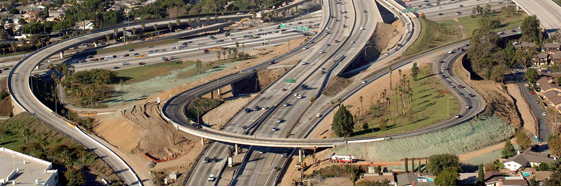

The Proactive Approach of Project SchedulingGallego Consulting Services (GCS), Inc. is an approved Caltrans DBE/SMBE firm (#34604) and provides development, maintenance and analysis of all aspects of project scheduling using the Critical Path Method (CPM). GCS has a proven history of expediting the project schedule approval process by being very proactive in its approach to reviewing and analyzing submitted project schedules. GCS specializes in the use of Primavera project scheduling software including Project Planner (P3) and SureTrak. When implementing the project schedule specification, GCS will strive to maintain an accurate and contemporaneous project schedule by requiring monthly scheduling meetings with the Contractor. To help facilitate and implement GCS’ proactive approach, audio-visual techniques are used during all scheduling meetings. The project schedule is projected onto a screen and jointly analyzed by GCS, Resident Engineer, Structure Representative, the Client and the Contractor. At these meetings, project schedule issues will be discussed and resolved. In addition, any modifications that are needed will be incorporated into the project schedule as needed. Keeping the Client InformedThe goal of GCS is to keep the Client informed with timely and accurate project status information. As with every project, GCS strives to maintain a contemporaneous project schedule, such that the final project schedule submittal will serve as the as-built project schedule. Meeting with the contractor, incorporating schedule changes, maintaining updated schedules, and resolving schedule issues will allow GCS to provide timely and accurate information. A schedule review report will be generated after each monthly meeting and forwarded to the Client. This report will allow the Client to know the status of the project, including any potential impacts and proposed solutions to the impacts. Furthermore, independent time impact analyses will be generated and forwarded to the Client for every change order prior to scheduling contractor negotiations. Close Coordination with All Parties Involved In the ProjectDue to the complexity of the Project, GCS will diligently analyze the project schedule to ensure proper sequencing of utility relocations and potential railroad impacts. Close coordination will be required of the Client, Contractor, Resident Engineer, Structure Representative, GCS, multiple utility companies, and Union Pacific Railroad. GCS’ proven history of close coordination and staged sequencing of complex construction projects will reduce the possibility of impacts to the local community. Sharing Data with the Local CommunityAnother facet of maintaining contemporaneous project schedules will be the feature of sharing the updated project schedule with the Client and the Local Community. The contemporaneous project schedule data can be used to inform local residents of the progress of the work and to forecast future milestones of the work. GCS’ project scheduling approach includes the analysis of the following:During the Planning Phase (Prior to Notice-to-Proceed):
During the Scheduling Phase (Baseline Submittal):
During the Control Phase (Monthly Updates):
|
| |
Copyright © 2005 - Gallego Consulting